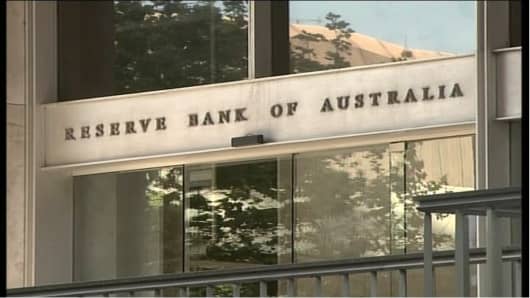But the judgement was finely balanced and the Board saw a good case for a larger move, in part to send a clear signal of its determination to restrain inflation.
"Members were strongly of the view that a significant slowing in demand from the pace observed through 2007 would be required for inflation to return to the target," the minutes showed.
Indicators of inflation expectations were also tending to rise, which could increase the cost of reducing inflation over time, focusing the debate on whether to raise the cash rate by 25 or 50 basis points.
"On some measures, the level of the cash rate in real terms arguably was noticeably below what might be expected given the economy's circumstances," the minutes showed. "On this basis, a significant further rise in the cash rate could be necessary."
Given that underlying inflation accelerated to a 16-year high at 3.6 percent in the last quarter of 2007, the real cash rate adjusted for inflation was 3.4 percentage points, a level that was not especially restrictive in historical terms.
Financial markets took the strongly-worded minutes to mean a further tightening in March was almost certain, sending the Australian dollar to fresh three-month highs while bill futures skidded.
Indeed, many analysts doubted that 7.25 percent would prove to be the peak for rates.
"Not only does this shore up the case for a hike in March, but it suggests a more aggressive move might be needed to break the cycle of rising inflation expectations and higher wages," said Brian Redican, a senior economist at Macquarie Bank. "A 50 basis-point move in March must be a risk now."
Domestic Strength
Arguing against a more aggressive move in February was that financial market conditions had already tightened due to the global credit crunch.
A rise of 25 basis points would still result in a total increase over nine months of about 100 basis points for business borrowers and around 90 basis points for housing borrowers.
"This was a significant increase over such a period and much of the effect of it was still to be seen," the minutes showed. "Additional tightening could be implemented at the March and/or subsequent meetings as judged necessary."
Volatility in global credit and equity markets and a slowing world economy could also have a dampening effect over time, the Board concluded.
Yet, in the end it was the strength of domestic demand that dominated the Board's thinking, a point reiterated by RBA Assistant Governor Malcolm Edey in a speech on Tuesday.
"The Australian economy to date has stayed robust, and the main domestic challenges are those of strong demand, tight capacity and inflationary pressures," said Edey, who heads the economics department at the central bank.
Australia is enjoying its 17th straight year of growth, while unemployment is down at a 33-year low of 4.1 percent and the price of everything from food to education is rising.
"The rhetoric of today's minutes suggests that the risks of more or larger hikes in the near-term have probably increased, especially if global credit market issues ease and equity markets stabilize," said George Thereon, an economist at UBS.


